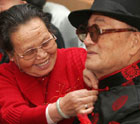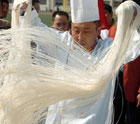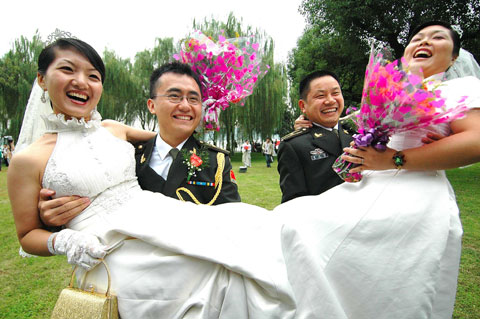The Chinese president on Monday pledged to thoroughly apply "Scientific Outlook on Development" as the country builds a moderately prosperous society.
Addressing the 17th National Congress of the Communist Party of China (CPC), Hu Jintao, also General Secretary of the CPC Central Committee, contributed a considerable part of his keynote address to the congress to elaborate on the Scientific Outlook on Development.
Hu described the new concept as "a continuation and evolution of the important thoughts on development advanced by the three generations of central collective leadership of the CPC and a concentrated expression of the Marxist world outlook and methodology."
As China is in the primary stage of socialism, the new concept has been "formulated to meet new requirements of development by analyzing China's own practice and drawing on the experience of other countries," Hu explained.
According to Hu, China is also facing a series of problems marked by unbalanced regional and income growth, along with rapid economic, social and political progress.
He said that the Scientific Outlook on Development takes development as its essence; comprehensive, balanced and sustainable development as its basic requirement; and overall consideration as its fundamental approach.
Hu also vowed to continue to further reforms and opening up in order to thoroughly apply the Scientific Outlook on Development.
"We will improve the socialist market economy, promote institutional reform and innovation in various sectors, accelerate reform in important fields and crucial links, improve opening up in all respects and make our systems and mechanisms full of vigor, and highly efficient," he said.
The outstanding problems and difficulties Hu listed include:
-- Economic growth is realized at the high cost of resources and the environment.
-- There is an imbalance in development between urban and rural areas, among regions, and between the economy and society.
-- It has become more difficult to have a steady growth of agriculture and to continue increasing farmers' incomes.
-- There are still many problems affecting people's daily lives in areas such as employment, social security, income distribution, education, public health, housing, work safety, administration of justice and public order; and some low-income people lead rather difficult lives.
-- More efforts are needed to promote ideological and ethical progress.
-- The Party’s governance capability falls somewhat short of the ability to deal with the new situation and tasks.
-- Some grass-roots Party organizations are weak and lax. A small number of Party cadres are not honest and upright. Waste, corruption and other undesirable behaviors are still serious problems among them.
"We always believe improving people's lives as a pivotal task in balancing reform, development and stability, and to ensure that our reforms always have the endorsement and support of the people," said Hu.











